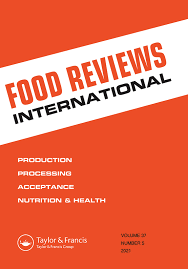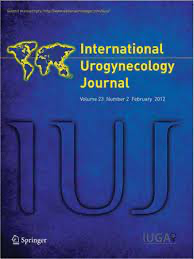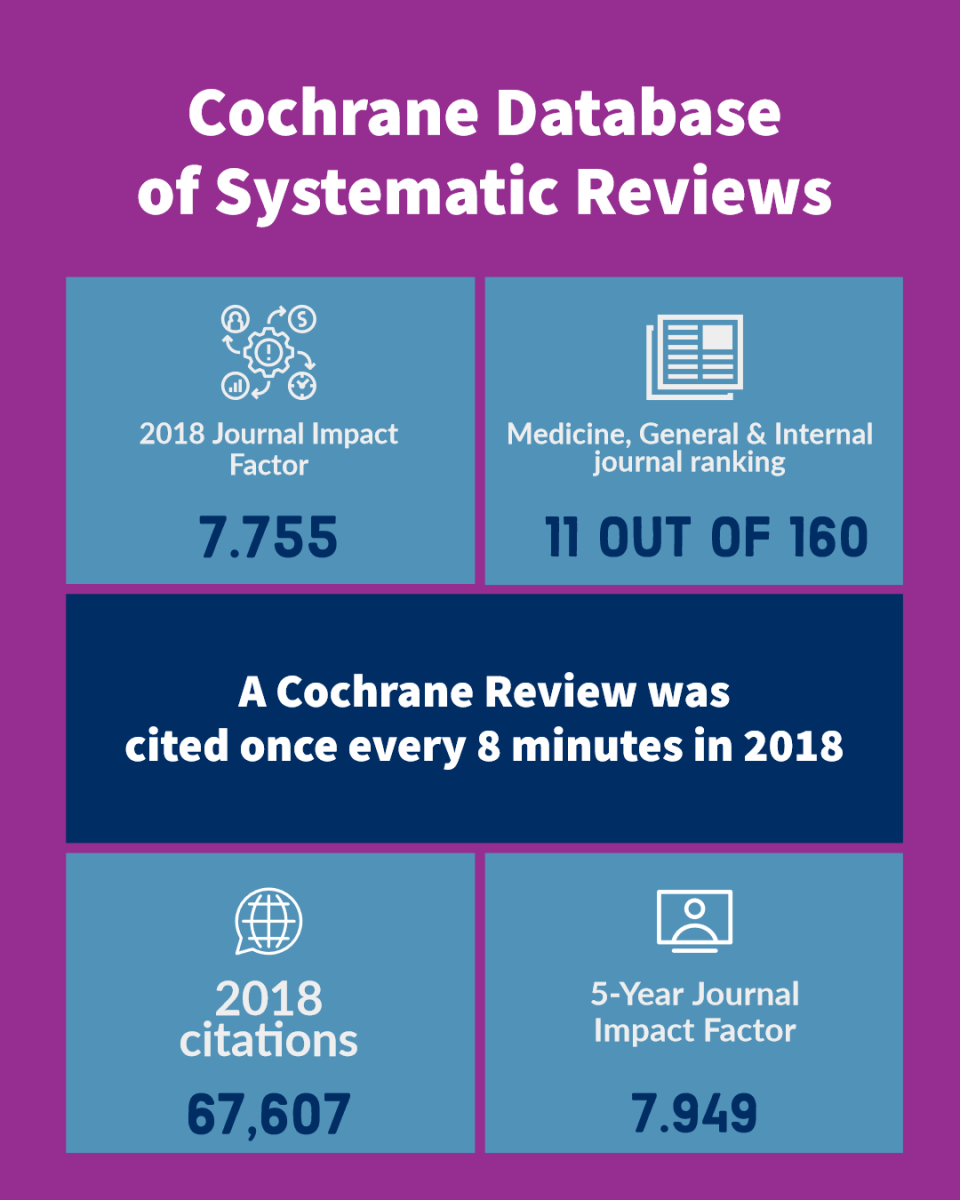Overactive Bladder
How to submit an article:
- Registered users can submit any published journal article that has a unique DOI (Digital Object Identifier) name or link to Research Hub.
- For example, you can paste the full DOI link:
https://doi.org/10.1109/5.771073or just the DOI name:10.1109/5.771073into the field above and click submit. - The person who is first to submit a valid article to Research Hub will forever be credited for it, and every article submission earns you +6 Research Points.
Overactive bladder (OAB) is a condition in which the bladder contracts too often and too strongly, causing a sudden and frequent urge to urinate and potentially leading to urinary incontinence.
Also known as: OAB
Published research studies are articles that present the findings of original research that has undergone a peer-review process and has been made publicly available in scholarly journals, books or other media.

Electroacupuncture for post-stroke overactive bladder: a multi-centre pilot randomized controlled trial
2020 Jul 09 Acupuncture in Medicine Chen H, Wang C, Zhou M, Yan Chan P, Lo Yam L, Lok Lam W, et al.
A six-session EA treatment was feasible and appeared to reduce OAB symptoms in post-stroke patients. Further fully powered trials are warranted to confirm the efficacy of EA for those with post-stroke OAB.
Randomised Controlled Trial Stroke Rehabilitation Overactive Bladder
Acupuncture for overactive bladder in adults: a systematic review and meta-analysis
2019 Dec Acupuncture in Medicine Mak TC, Chen HY, Cho WC
Systematic Review Meta-Analysis Overactive BladderMeta-analysis showed that acupuncture was comparable to drugs in the reduction of overactive bladder symptoms.

The beneficial effects of Pumpkin (Cucurbita pepoL.) seed oil for health condition of men
2018 Jun 28 Food Reviews International Ramak P, Mahboubi M
Review Article Men's Health Benign Prostatic Hyperplasia Overactive Bladder Androgenic Alopecia Pumpkin SeedPumpkin seed oil appears effective for improving men's health conditions such as enlarged prostate, overactive bladder, and hair loss due to its anti-inflammatory properties and radical scavenging.

Acupuncture for adults with overactive bladder: A systematic review and meta-analysis of randomized controlled trials
2018 Feb 23 Medicine Zhao Y, Zhou J, Mo Q, Wang Y, Yu J, Liu Z.
Systematic Review Meta-Analysis Insomnia Overactive BladderAcupuncture might have effect in decreasing the number of micturition episodes, incontinence episodes, and nocturia episodes.

Acupuncture for adults with overactive bladder
2018 Feb 23 Medicine Zhao Y, Zhou J, Mo Q, Wang Y, Yu J, Liu Z
Systematic Review Meta-Analysis Overactive Bladder Bladder ConditionsAcupuncture might have effect in decreasing the number of micturition episodes, incontinence episodes, and nocturia episodes.
Research insights are moderated by the Research Hub team and offer an at-a-glance overview of interesting research findings.

2019 Acupuncture in Medicine
Meta-analysis showed that acupuncture was comparable to drugs in the reduction of overactive bladder symptoms.
Systematic Review
Acupuncture for overactive bladder in adults: a systematic review and meta-analysis
Mak TC, Chen HY, Cho WC

2018 Food Reviews International
Pumpkin seed oil appears effective for improving men's health conditions such as enlarged prostate, overactive bladder, and hair loss due to its anti-inflammatory properties and radical scavenging.
Review Article Androgenic Alopecia Benign Prostatic Hyperplasia Men's Health Pumpkin Seed
The beneficial effects of Pumpkin (Cucurbita pepoL.) seed oil for health condition of men
Ramak P, Mahboubi M

2018 Medicine
Acupuncture might have effect in decreasing the number of micturition episodes, incontinence episodes, and nocturia episodes.
Systematic Review Insomnia
Acupuncture for adults with overactive bladder: A systematic review and meta-analysis of randomized controlled trials
Zhao Y, Zhou J, Mo Q, Wang Y, Yu J, Liu Z.

2018 Medicine
Acupuncture might have effect in decreasing the number of micturition episodes, incontinence episodes, and nocturia episodes.
Systematic Review Bladder Conditions
Acupuncture for adults with overactive bladder
Zhao Y, Zhou J, Mo Q, Wang Y, Yu J, Liu Z

2016 International Urogynecology Journal
Some comparative trials showed the benefit of acupuncture to be comparable with antimuscarinic treatment for overactive bladder.
Review Article
The role of acupuncture in managing overactive bladder; a review of the literature
Forde JC, Jaffe E, Stone BV, Te AE, Espinosa G, Chughtai B.
Review Articles
Review articles summarise and critically evaluate the current state of research on a specific topic or field by synthesising multiple primary research studies.

Acupuncture for overactive bladder in adults: a systematic review and meta-analysis
2019 Dec Acupuncture in Medicine Mak TC, Chen HY, Cho WC
Systematic Review Meta-Analysis Overactive BladderMeta-analysis showed that acupuncture was comparable to drugs in the reduction of overactive bladder symptoms.

The beneficial effects of Pumpkin (Cucurbita pepoL.) seed oil for health condition of men
2018 Jun 28 Food Reviews International Ramak P, Mahboubi M
Review Article Men's Health Benign Prostatic Hyperplasia Overactive Bladder Androgenic Alopecia Pumpkin SeedPumpkin seed oil appears effective for improving men's health conditions such as enlarged prostate, overactive bladder, and hair loss due to its anti-inflammatory properties and radical scavenging.

Acupuncture for adults with overactive bladder: A systematic review and meta-analysis of randomized controlled trials
2018 Feb 23 Medicine Zhao Y, Zhou J, Mo Q, Wang Y, Yu J, Liu Z.
Systematic Review Meta-Analysis Insomnia Overactive BladderAcupuncture might have effect in decreasing the number of micturition episodes, incontinence episodes, and nocturia episodes.

Acupuncture for adults with overactive bladder
2018 Feb 23 Medicine Zhao Y, Zhou J, Mo Q, Wang Y, Yu J, Liu Z
Systematic Review Meta-Analysis Overactive Bladder Bladder ConditionsAcupuncture might have effect in decreasing the number of micturition episodes, incontinence episodes, and nocturia episodes.

The role of acupuncture in managing overactive bladder; a review of the literature
2016 Jan 6 International Urogynecology Journal Forde JC, Jaffe E, Stone BV, Te AE, Espinosa G, Chughtai B.
Review Article Overactive BladderSome comparative trials showed the benefit of acupuncture to be comparable with antimuscarinic treatment for overactive bladder.
Clinical Trials
Clinical trials are research studies that involve people and are conducted to evaluate the safety and efficacy of new treatments or interventions, such as drugs, medical devices, or behavioural therapies.
Study Protocols
Published study protocols are detailed plans that outline the objectives, methodology, statistical analyses, and organisation of a research study that have been made publicly available for others to review and use as a reference.
Presentation Slides

Systematic Review
Meta-analysis showed that acupuncture was comparable to drugs in the reduction of overactive bladder symptoms.
Mak TC, Chen HY, Cho WC

Review Article
Pumpkin seed oil appears effective for improving men's health conditions such as enlarged prostate, overactive bladder, and hair loss due to its anti-inflammatory properties and radical scavenging.
Ramak P, Mahboubi M

Systematic Review
Acupuncture might have effect in decreasing the number of micturition episodes, incontinence episodes, and nocturia episodes.
Zhao Y, Zhou J, Mo Q, Wang Y, Yu J, Liu Z.

Systematic Review
Acupuncture might have effect in decreasing the number of micturition episodes, incontinence episodes, and nocturia episodes.
Zhao Y, Zhou J, Mo Q, Wang Y, Yu J, Liu Z

Review Article
Some comparative trials showed the benefit of acupuncture to be comparable with antimuscarinic treatment for overactive bladder.
Forde JC, Jaffe E, Stone BV, Te AE, Espinosa G, Chughtai B.
Executive Summary
Write an executive summary in the form of a blog article on the topic of "Research into Chinese medicine treatment for Overactive Bladder" summarising the research below and using language that can be easily understood by patients and avoiding medical jargon using a professional and caring tone of voice.
Write an executive summary in the form of a blog article on the topic of "Researched Chinese medicine treatments for Overactive Bladder" summarising the research below in an objective and easy to understand way, and using language that can be easily understood by patients. Group the article into Chinese medicine treatments first, followed by nutrition and other treatments. Avoid using medical jargon and use a professional and caring tone of voice.
Write me a concise but easy to understand executive summary on the topic of "Chinese medicine treatments for Overactive Bladder" based on the following research that I will give you. Your summary should be 2 paragraphs long in Australian English spelling and include references to the studies.
A Systematic Review published in 2019 in the journal Acupuncture in Medicine found that Meta-analysis showed that acupuncture was comparable to drugs in the reduction of overactive bladder symptoms. Seven eligible trials involving 695 participants were included. Meta-analysis showed that acupuncture was comparable to drugs (tolterodine tartrate/solifenacin) in the reduction of micturition episodes over 24 hours, increase in voided volume of each micturition episode, and reduction of overactive bladder symptom score. In addition, acupuncture was not significantly different compared with placebo in the reduction of overactive bladder symptom score. No serious adverse events were reported.
A Review Article published in 2018 in the journal Food Reviews International found that Pumpkin seed oil appears effective for improving men's health conditions such as enlarged prostate, overactive bladder, and hair loss due to its anti-inflammatory properties and radical scavenging. The study methodology entailed the review of various clinical trials that examined the impacts of pumpkin seed oil on different health conditions common in men. These conditions included Benign Prostatic Hyperplasia (a non-cancerous enlargement of the prostate gland), overactive bladder, and androgenic alopecia (a hair loss condition). The decision to focus on these conditions was based on the potential therapeutic value of the biochemical components of the oil, such as its rich contents of essential, highly unsaturated fatty acids and phytosterols. In discussing the results, it was observed that the beneficial effects of pumpkin seed oil in treating the examined health conditions are potentially linked to the oil's contents of phytoestrogens and unsaturated fatty acids. It was suggested that these compounds may inhibit the enzyme 5-alpha reductase, which is an important factor in the enlargement of the prostate and hair loss. Additionally, the oil's anti-inflammatory properties and its capacity to scavenge free radicals might contribute to its therapeutic advantages. Furthermore, it is postulated that the oil may also have a relaxation effect on the bladder sphincter, thereby aiding patients with urination difficulties.
A Systematic Review published in 2018 in the journal Medicine found that Acupuncture might have effect in decreasing the number of micturition episodes, incontinence episodes, and nocturia episodes. Overactive bladder is stated as the occurrence of urinary urgency which will cause negative impacts and decrease patients’ health-related quality of life. The aim of this systematic review is to assess the efficiency and safety of acupuncture for adults with overactive bladder (OAB) comparing with sham-acupuncture, drugs, and acupuncture plus drugs. Acupuncture might have effect in decreasing the number of micturition episodes, incontinence episodes, and nocturia episodes. However, the evidence is insufficient to show the effect using acupuncture alone or the additional effect to drugs in treating OAB.
A Systematic Review published in 2018 in the journal Medicine found that Acupuncture might have effect in decreasing the number of micturition episodes, incontinence episodes, and nocturia episodes. According to the results of meta-analysis, acupuncture might have effect in decreasing the number of micturition episodes, incontinence episodes, and nocturia episodes. However, the evidence is insufficient to show the effect using acupuncture alone or the additional effect to drugs in treating OAB. Nevertheless, acupuncture is comparatively with few adverse reactions and safe. In the future, studies with high methodological quality and larger sample sizes are required.
A Review Article published in 2016 in the journal International Urogynecology Journal found that Some comparative trials showed the benefit of acupuncture to be comparable with antimuscarinic treatment for overactive bladder. Initial animal studies suggest several biochemical mechanisms of action underlying the effect of acupuncture on overactive bladder (OAB) suppression. The experience in humans includes two case series and six comparative trials. All studies demonstrated subjective improvement in OAB symptoms, and some reported objective improvement in urodynamic studies. Notably, some comparative trials showed the benefit of acupuncture to be comparable with antimuscarinic treatment. Despite their limitations, existing studies serve as a promising foundation for suggesting a role for acupuncture as an alternative therapy for OAB. Further well-designed studies are required to investigate optimal technique and their outcomes.
Moderation Tools
Topic
Sign In
Users not signed in are limited to viewing the 5 most recent items of content.
